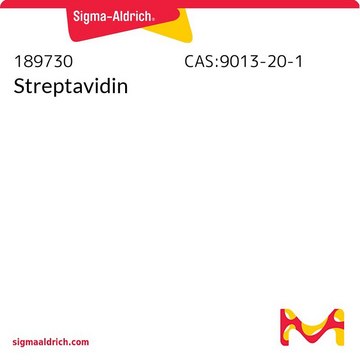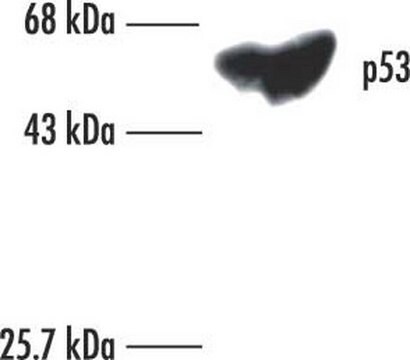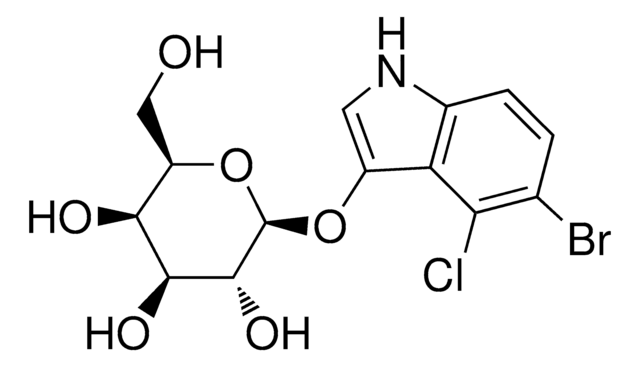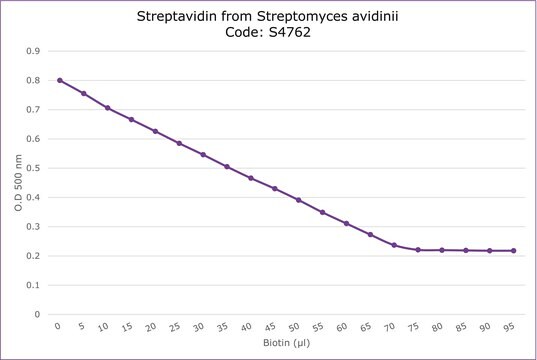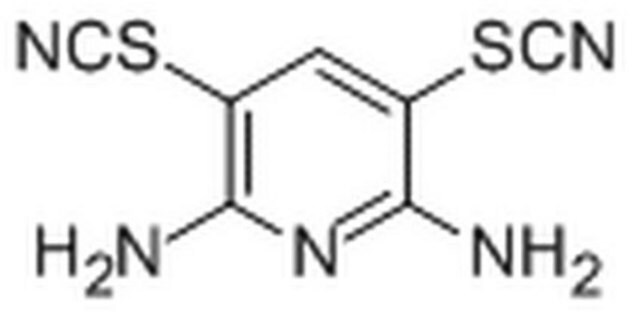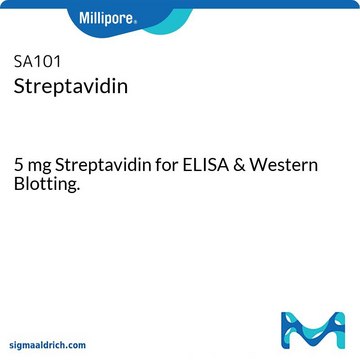OP43L
Anti-p53 (Ab-6) (Pantropic) Mouse mAb (DO-1)
lyophilized, clone DO-1, Calbiochem®
About This Item
Prodotti consigliati
Origine biologica
mouse
Livello qualitativo
Forma dell’anticorpo
purified antibody
Tipo di anticorpo
primary antibodies
Clone
DO-1, monoclonal
Stato
lyophilized
non contiene
preservative
Reattività contro le specie
feline, human
Non deve reagire con
mouse, rat
Produttore/marchio commerciale
Calbiochem®
Condizioni di stoccaggio
OK to freeze
Isotipo
IgG2a
Condizioni di spedizione
ambient
Temperatura di conservazione
2-8°C
modifica post-traduzionali bersaglio
unmodified
Informazioni sul gene
human ... TP53(7157)
Descrizione generale
Immunogeno
Applicazioni
Gel Shift (see comments)
Immunoblotting (0.1 µg/ml; see application references)
Immunocytochemistry (1-2.5 µg/ml; see application references)
Immunoprecipitation (1 µg/ml or use Cat. No. OP43A; see application references)
Paraffin sections (1 µg/ml, pepsin, heat or pressure cooker pre-treatment required; see application references)
Attenzione
Stato fisico
Ricostituzione
Risultati analitici
SK-OV-3 cells or normal skin tissue
A431 cells or breast carcinoma tissue
Altre note
Greenblatt, M.S., et al. 1994. Cancer Res.54, 4855.
Legros, Y., et al. 1994. Oncogene9, 2071.
Barak, Y., et al. 1993. EMBO J.12, 461.
Kastan, M.B., et al. 1992. Cell71, 587.
Kuerbitz, S.J. 1992. Proc. Natl. Acad. Sci. USA89, 7491.
Lane, D.P. 1992. Nature358, 15.
Vojtesek, B., et al. 1992. J. Immunol. Meth.151, 237.
Kastan, M.B., et al. 1991 Cancer Res.51, 6304.
Note legali
Non trovi il prodotto giusto?
Prova il nostro Motore di ricerca dei prodotti.
Codice della classe di stoccaggio
11 - Combustible Solids
Classe di pericolosità dell'acqua (WGK)
WGK 1
Certificati d'analisi (COA)
Cerca il Certificati d'analisi (COA) digitando il numero di lotto/batch corrispondente. I numeri di lotto o di batch sono stampati sull'etichetta dei prodotti dopo la parola ‘Lotto’ o ‘Batch’.
Possiedi già questo prodotto?
I documenti relativi ai prodotti acquistati recentemente sono disponibili nell’Archivio dei documenti.
Il team dei nostri ricercatori vanta grande esperienza in tutte le aree della ricerca quali Life Science, scienza dei materiali, sintesi chimica, cromatografia, discipline analitiche, ecc..
Contatta l'Assistenza Tecnica.
